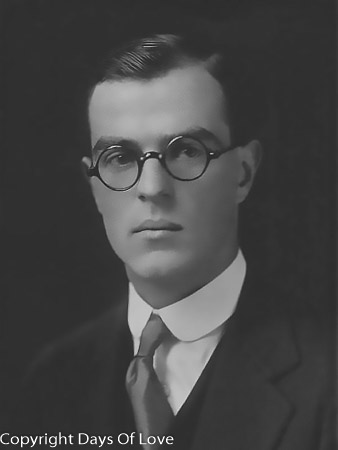Queer Places:
211 W Gilman St, Madison, WI 53703, USA
140 Langdon St, Madison, WI 53703, Stati Uniti
Maple Bluff, WI, Stati Uniti
Berkeley High School, 1980 Allston Way, Berkeley, CA 94704, Stati Uniti
Oberlin College, 173 W Lorain St, Oberlin, OH 44074, Stati Uniti
Yale University (Ivy League), 38 Hillhouse Ave, New Haven, CT 06520
Lawrenceville School, 2500 Main Street, Lawrenceville, NJ 08648, Stati Uniti
Princeton University (Ivy League), 110 West College, Princeton, NJ 08544
50 Deepwood Dr, Hamden, CT 06517, USA
MacDowell Colony, 100 High St, Peterborough, NH 03458
Mount Carmel Cemetery, 3801 Whitney Ave, Hamden, CT 06518, Stati Uniti
 Thornton
Niven Wilder (April 17, 1897 – December 7, 1975) was an American playwright
and novelist. He won three Pulitzer Prizes—for the novel The Bridge of San
Luis Rey, and for
the plays Our Town and The Skin of Our Teeth — and a U.S.
National Book Award for the novel The Eighth Day.
Thornton
Niven Wilder (April 17, 1897 – December 7, 1975) was an American playwright
and novelist. He won three Pulitzer Prizes—for the novel The Bridge of San
Luis Rey, and for
the plays Our Town and The Skin of Our Teeth — and a U.S.
National Book Award for the novel The Eighth Day.
Although Wilder never discussed being homosexual publicly or in his
writings, his close friend
Samuel Steward
acknowledged having sexual relations with him.[23]
Wilder was introduced to Steward by
Gertrude Stein, who
at the time regularly corresponded with both of them. The third act of Our
Town was allegedly drafted after a long walk,
during a brief affair with Steward in Zürich, Switzerland.[24]
In Penelope Niven's biography, Thornton Wilder: A Life,, she provides
considerable epistolary evidence that the third act of "Our Town" was not
written in response to any walk, conversation or affair with Samuel Steward
but was begun before Wilder ever met Steward and was not finished until
several months afterward. Niven also raises doubts about Steward's
uncorroborated and unsubstantiated claims of having been Wilder's lover.[25]
Wilder had a wide circle of friends and enjoyed mingling with other famous
people,[1]
including Ernest
Hemingway, Russel
Wright, Willa Cather
and Montgomery
Clift.
From the earnings of The Bridge of San Luis Rey,, in 1930 Wilder
built a house for his family in Hamden, Connecticut. His sister Isabel lived
there for the rest of her life. This became his home base, although he
traveled extensively and lived away for significant periods. He died in that
house on 7 December 1975, of
heart failure.[6]
He was interred at Mount Carmel Cemetery,
Hamden, Connecticut.[26]
![Portrait of Thornton Wilder, as Mr. Antrobus in "The Skin of our Teeth"] | Library of Congress](../images/images%20008/5a52786r.jpg)
by Carl Van Vechten


by Rollie McKenna

Thornton Wilder, 1939, by Gisèle Freund
.jpg)
Yale University, New Haven, CT
.jpg)
Princeton University, NJ
Albert Marre recounted arranging a meeting between
William Faulkner and
Thornton Wilder at Wilder’s apartment and
at Wilder’s request. When Marre approached Faulkner about the meeting,
Faulkner established the tone that the meeting would eventually take by asking
Marre, when he named Thornton Wilder, “Who’s that?”. Marre understood the
insult and called Faulkner’s bluff. When the two writers met, Faulkner
continued his insolent performance. The “disastrous interview” consisted of
Faulkner’s putting on his “super Southern country boy routine” and sitting at
some distance and at an angle from the partially deaf Wilder. Faulkner’s
spatial manipulation forced Wilder to lean in and cup his hand over his ear to
hear Faulkner, who intentionally spoke in a low voice in response to Wilder’s
questions. When Wilder tried to explain what he thought was the meaning of the
title Light in August, Faulkner rudely rejected his interpretation. Marre
explained that he “saw Wilder flush. He rose and departed,” clearly upset that
his praise of Faulkner elicited such a boorish response. Marre’s anger at
Faulkner only increased when Wilder wrote Marre a few days after the incident
to ask, “Why did he hate me?”.
My published books:


BACK TO HOME PAGE

- https://en.wikipedia.org/wiki/Thornton_Wilder
- Gordon, Phillip. Gay Faulkner (p.201). University Press of
Mississippi. Edizione del Kindle.
 Thornton
Niven Wilder (April 17, 1897 – December 7, 1975) was an American playwright
and novelist. He won three Pulitzer Prizes—for the novel The Bridge of San
Luis Rey, and for
the plays Our Town and The Skin of Our Teeth — and a U.S.
National Book Award for the novel The Eighth Day.
Thornton
Niven Wilder (April 17, 1897 – December 7, 1975) was an American playwright
and novelist. He won three Pulitzer Prizes—for the novel The Bridge of San
Luis Rey, and for
the plays Our Town and The Skin of Our Teeth — and a U.S.
National Book Award for the novel The Eighth Day.![Portrait of Thornton Wilder, as Mr. Antrobus in "The Skin of our Teeth"] | Library of Congress](../images/images%20008/5a52786r.jpg)



.jpg)
.jpg)

